

Jeevidam Limited, a livelihood initiative of DHAN Foundation, has promoted several Farmer Producer Organizations (FPOs) in Odisha, specifically in the districts of Mayurbhanj, Kalahandi, and Koraput. These FPOs aim to strengthen social and financial capital among the local communities, providing diverse livelihood opportunities to improve economic stability and sustainability.
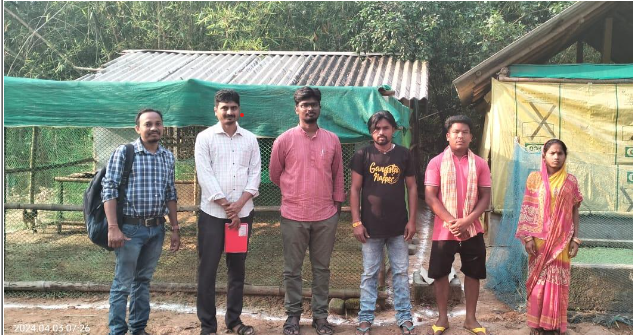
Farmers Producer Companies in Mayurbhanj District
In Mayurbhanj, DHAN Foundation has promoted two Farmer Producer Organizations: Mayurbhanj Kalanjia Jeevidam in Betnoti, specializing in Backyard Poultry, and Similipal Kalanjia Jeevidam, also in Betnoti, focusing on honey and its by-products. These FPOs have enrolled 1,300 farmers and are registered under the Producer Companies Act. Both are governed by a Board of Directors comprising women representatives of the tribal farmers of Mayurbhanj. These FPOs facilitate backyard poultry production and marketing through various interventions.
Backyard Poultry as a Livelihood
Women Kalanjiam members actively participate in the Backyard Poultry Business, which is jointly promoted with the "Hatching Hope of Heifer International" project. The producer company regularly purchases chicks from its members and sells them at reasonable prices. Backyard country chicken production and consumption are highly recommended over broiler chickens. The enthusiasm and dedication of the women involved in this business have led to significant improvements in their economic status. Regular training sessions and support from the FPO have empowered these women to efficiently manage poultry farming, ensuring a sustainable income source for their families.
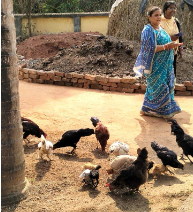
Sal Leaf Plates as a Livelihood
Sal leaf plate production is a major livelihood in Betnoti Block. Women Kalanjiam members collect, dry, and make beautiful plates from sal leaves during their free time. These leaves are cost-effective and biodegradable. The FPO provides plate-making machines to the women, purchases the plates, and sells them at the best prices. The production of sal leaf plates not only provides a source of income but also promotes environmental sustainability. By using biodegradable materials, these women contribute to reducing plastic waste. The demand for these eco-friendly plates is steadily increasing, opening new market opportunities for the producers.
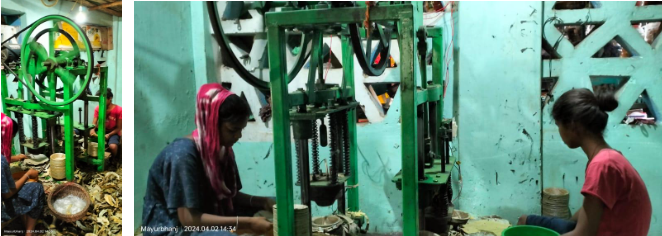
Farmers Producer Companies in Kalahandi District
In Kalahandi District, Jeevidam Limited has promoted the Sadhana Kalanjia Jeevidam Honey Bee Farmers Producer Company in M. Rampur Block. This FPO, with 313 members, is governed by a 10-member Board of Directors. These organizations focus on enhancing social and share capital among their members through sustainable practices and community engagement.
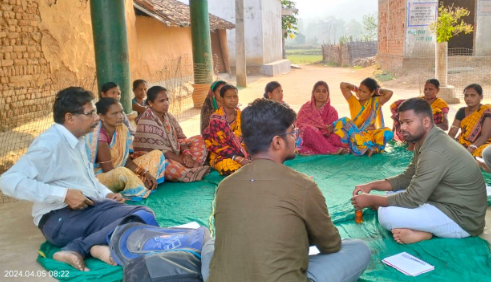
NTFP and Wild Honey Collection as Major Livelihoods
The people of this block primarily depend on Non-Timber Forest Produce (NTFP) and wild honey collection. The members collect Mahua (Madhuca longifolia), known as Illuppai in Tamil, which is abundant in the M. Rampur forests. They also collect Apis dorsata honey, known for its health benefits due to the diverse species of M. Rampur Forest. Other NTFPs include wild Amla, Harida, Bahada, Reetha, Sal leaves, Sabai grass, Wood apples, Satabari, Neem, Karanja seeds, Ananta mula, Nageswar flowers, Wild Turmeric, Wild Tulsi, and Dhatuki flowers.
The collection and processing of these NTFPs provide vital income for the local communities. By promoting sustainable harvesting practices, the FPO ensures that these resources are not depleted, preserving the biodiversity of the forest. The establishment of market linkages has also ensured fair prices for the produce, enhancing the economic stability of the community members.
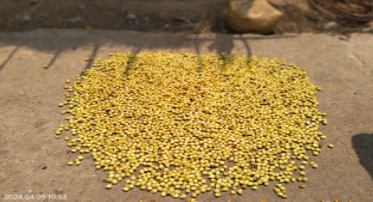
Ragi Cultivation as Major Livelihood in Koraput District
In Koraput District, DHAN Foundation has promoted two FPOs with the support of the Odisha Millet Mission Programme, located in Dashmantpur and Similiguda. These FPOs deal with millet grains and value-added millet products, supplying ragi grains, ragi snacks like muruku, powders, and other products. The cultivation of millets has seen a resurgence due to their nutritional benefits and resilience to adverse climatic conditions. The FPOs in Koraput have implemented advanced farming techniques and value-addition processes to enhance the quality and marketability of millet products. This initiative not only boosts the farmers' income but also promotes food security and sustainable agriculture practices.
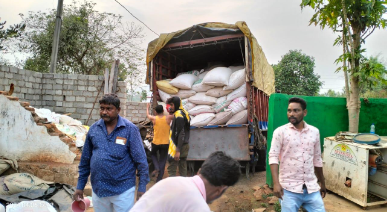
Jeevidam’s Initiatives and Value Additions
